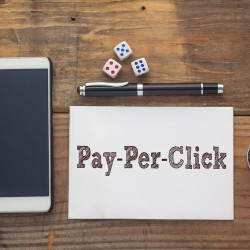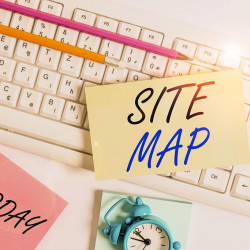The feeling of excitement when your new website launches can be fantastic, especially when you put the word out and your friends, your family and existing client base visits and you see those visitor figures climb up and up and up. But without a strong campaign behind the promotion of the launch, you'll probably start noticing these figures slowly dropping and before you know it, your website goes quiet and you feel like you've wasted your money.
This certainly shouldn't be the case. Part of your campaign to shout about the launch is link building, the method of doing as it says on the tin - building links.
What exactly is link building?
Search engines such as Google, Bing and others are continually crawling the web. This is where they go out, discover new pages and indexes it for other people to find it using their algorithms. The tricky part is, how exactly do they find out about these new websites? The good news is, there are a few methods, including:
- You can tell them. They have their own tools and methods to let you tell them about a new website and even give it important information such as a sitemap.
- They'll find it through links. If you've ever clicked on a link and moved from one web page to another, you've replicated exactly what link building is about, and witnesses what search engines do to find out about new sites - they follow links.
Now, you may be wondering "I'm already on Google, do I need to worry about link building?" In short, probably. Google knows about way too many pages to even imagine how big their index is. Imagine competing against them for the same search terms to ensure the right audience can find you. It's going to be tough!
The art of link building is where you gain links back to your site. Think of it this way, the more links there are coming into your website, the more people who are likely to visit too. But with SEO, it's not just about the incoming traffic, it's about quality too.
Is there such a thing as a bad link?
Yes, there is. Think of a website that is of no value to anyone - it's just full of ads to help someone make money. Would you consider that a good, trustworthy website? Probably not, and neither would a search engine. So if they link to yours, that bad feeling could rub off on your site too.
A link, although often just a line of text, is much more than just that to a search engine. It considers things such as:
- Popularity . Imagine how many links Wikipedia has coming into it - it must be a very important and useful website
- The actual text of the link . If the link says "book shop" and you sell books, well you must be exactly that
- Your own links out . If a site is linking to you, do you link to it? If so, that may imply that you support that page. If it's the ad site we mentioned above, surely that's something you shouldn't be shouting about too.
Building your links in
So, how exactly do you build links? As we mentioned above, it is a bit of an art and quite a challenge too. But if you get it right, it can work well for your website.
There are a few ways you can build links. There are no hard and fast rules on what's better for your site, it can vary. But it's often considered important to try and build a vast and varied link profile.
Guestbooks, Blog Comments and Others
These are probably the easiest way to spread the word about your site. On their own, they're of little value, but when they appear in the mass, then they can have some pulling power. But as many sites use these as unmoderated areas, tread carefully when using these. It's possible that they could do more harm than good. If a search engine such as Google sees that you're using these just to gain the link (especially alongside spam websites), then they may penalise you for doing so - the complete opposite of what you're trying to achieve.
Gaining the Link
Another common way to gain the link to your site is to reach out to other webmasters and ask for them to add a link to their site. This could be through a blog post, entering a competition (such as, 'Site of the Month' competitions) or submitting your links to directories. These can have a lot of pulling power, and certainly more than the guestbook approach.

Being trusted and worthy of the link
This one is likely to be the most time consuming but most rewarding. These are the more 'natural' links in the link building process and often require no prompts from you to promote them. So, how do you gain these links exactly? Good content.
To gain these links, you should be producing good quality content such as white papers, blog posts, free resources - whatever is suitable for your business and industry, and be at a level where someone thinks " Wow, I need to share this! "
Because these are more natural, search engines like them. How does it tell the difference? Well, Google certainly is a mystery...
How to generate the links
You have a wonderful website, you've filled it full of great content and now you need the links. Where now?
This is just like most other marketing activities - you need goals to help build the strategy.
As with other factors that search engines take into account, the exact weight that a link has compared to any other SEO factor is unknown to anyone but Google. But doing this can certainly help (but is never guaranteed). There are however a few things you should consider as part of your link building campaign.
Similar Sites
If you want to be ranking for the keywords "thriller books", doing a search on this yourself will reveal some good pages to try and gain links from. Those particularly with the keywords in the title tag (that's the blue link on Google), and the description (the black text underneath) could work some magic.
Link Congestion
Take a look at the webpage you think you would really like a link from, and see how many links it has going out. If there are too many links, the importance of one of those links may become diluted. Let me explain.
The original documentation about Google states that:
Academic citation literature has been applied to the web, largely by counting citations or backlinks to a given page. This gives some approximation of a page's importance or quality. PageRank extends this idea by not counting links from all pages equally, and by normalizing by the number of links on a page.
So, assuming that nothing else on the page affects any of the links value, it's quite possible that a page with fewer links is worth more than a page with many links.
Think about the User
You should always keep the end user in mind. Don't link from a web page because it "looks good"; link from a page because it's likely how a user would find your site. Sticking with the bookshop theme, linking from a book review website is likely to be a good way to gain traffic. Linking from a pet shop website just "because you can", isn't going to do much good.
It's all well and good having the links, but it'll be the users who will contact you, or spend money with you at the end of the day. This really goes hand in hand with one of the points above - if you have valuable content, it's more likely they'll visit your site, stay on the site, and hopefully convert on the site too.
Is there anything I shouldn't do?
Buying links is generally a bad idea. They often don't appear on good or valuable sites that would be anything good to yours. I'm not suggesting that all sites fall into this category, but search engines have put a lot of effort into their algorithms to penalise sites using this strategy.
Building your Strategy
It can be time-consuming, and a lot of patience is required, but having a solid strategy in place can be worth while.
Hopefully, the tips above will set you on the right track, but remember - we're here to help.





